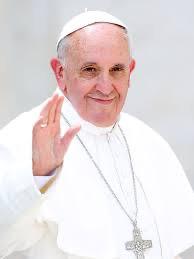Pope Francis has died at the age of 88, after a solid 12-year tenure at the helm of the Roman Catholic Church. It’s a time of genuine sadness for millions in Africa and around the world. But within the loss, there is a looking forward: who will be the next Pope? This will not be a quick and easy decision. It is a practice that dates back to ancient times.
The Pope’s Big Job and the Empty Seat: So What Now?
As Bishop of Rome, the Pope is the supreme leader of the over one billion Catholics worldwide. He walks in the footsteps of Saint Peter. It’s a massive role. He gives spiritual guidance. He explains the Church’s teaching. He even weighs in on global affairs. When a Pope passes away, nothing stays the same. It is called “sede vacante,” Latin for “the seat is empty.” This begins a series of steps. The Cardinal Camerlengo is crucial. He is the one who formally announces the Pope’s death. Then comes a symbolic act. The Pope’s special ring, the Fisherman’s Ring, has a break in it. His private apartments are shut tight.
Inside the Conclave: Electing the Next Leader behind Locked Doors
It is the College of Cardinals that selects the next Pope. They are prominent church leaders from around the world. Normally, only people under the age of 80 are invited to participate in this unique meeting, which is called a conclave. It is set inside the iconic Sistine Chapel in the Vatican. The term “conclave” means “with a key” in Latin. It’s a shrouded-in-secret get-together, all done for the sake of keeping it secret and free of outside pressures.
There is a great deal of ceremony involved in electing a new Pope. The cardinals vote in secret. For a victory, somebody must have two out of every three votes. If nobody gets that immediately, they can continue voting, up to four times a day. Once each vote is cast, the ballots are burned. Black smoke from the Sistine Chapel chimney means no decision. But when a cardinal finally receives that two-thirds, they ask if he’ll accept the job. If he agrees to this, then he selects the name of his new Papacy. Then the world waits for the sign: white smoke pouring from the chimney! That means “We have a Pope!” The new pope then walks to the balcony of St. Peter’s Basilica to deliver his first blessing, “Urbi et Orbi,” for the city and the world.
Africa’s Powerful Voice in the Catholic World
In theory, any baptised Catholic man could serve as pope under church law. But for centuries, it has always been one of the cardinals. Here it is that the African cardinals are so key. Like their brothers in the rest of the world, they can be elected the new Pope. And because the number of Catholics is increasing in Africa, these cardinals count for much in the Church. Wouldn’t an African Pope, in a historical sense, show the Church to be a universal family of active members all over the world?
For now, these African cardinals have so much to give. Their power, combined with the growing ranks of Catholics throughout Africa, offers them genuine clout in that closed chamber, the conclave. They will be essential to ensure that the challenges and opportunities facing the continent are genuinely understood. The next papacy will need an enlightened understanding of these matters. The Faith in rich, northern countries is still significant, yes- but it no longer has the full picture. That shift is likely to be laid out in this upcoming election.
Ghana’s Cardinals: A Voice in the Election of the Next Pope
The death of Pope Francis gives Ghanaian Catholics a moment of introspection and hope. Ghanaian cardinals have a very special place within the conclave. Their voices will join those of the representatives of a vibrant and growing Catholic community in Africa, which will contribute to shaping the Church’s future orientation.
Their presence at the synod also emphasizes the global Catholic community, and the growing role the African continent plays in the landscape of the Church. The conclave will be closely observed by Ghanaians, well aware their clerics have an important role to play in choosing a leader who understands and meets the spiritual and social needs of the church in their communities- and across the globe.
A new pope can therefore lead the Church to preserve the window of inclusiveness, and to embrace the contributions of Catholics in Africa.
A Hope for a Continent, A Future for a Global Church
While the world awaits white smoke, signalling the election of a new Pontiff, Ghana and the rest of Africa are focusing on the Vatican. This conclave is more than a tradition; it will reshape the direction of the catholic church.
The Ghanaian cardinals have a great deal of responsibility as they are the representatives of the continent’s vigorous faith in the face of adversity.
The next Pope must not only be a spiritual leader, but also a global statesman, keenly aware of the realities facing Africa. He must understand the complexities of Africa- from poverty and conflict to the burgeoning youth and the rich tapestry of cultural diversity. The voices of African cardinals within the Sistine Chapel resonate with the hopes of millions, calling for a universal Church that lives in the African faith.
This election is not just about choosing a successor to Pope Francis; it’s about affirming Africa’s rightful place at the heart of the Catholic Church, a place where its vibrant faith and profound contributions will shape the destiny of a global community.
DISCLAIMER: The Views, Comments, Opinions, Contributions and Statements made by Readers and Contributors on this platform do not necessarily represent the views or policy of Multimedia Group Limited.

